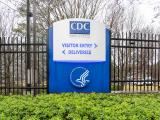Jun 28, 2012 (CIDRAP News) – Today's historic US Supreme Court ruling upholding most of the 2010 healthcare reform law provides an important boost for preventive health services, including immunizations, public health and medical groups said in praising the ruling.
In a 5-4 decision, the court upheld the Affordable Care Act's (ACA's) hotly debated insurance mandate—the requirement that nearly everyone have health insurance or pay a penalty. Chief Justice John Roberts, who voted with the majority, said the court viewed the insurance mandate as a valid exercise of Congress's taxation authority, the Associated Press (AP) reported.
The ruling, which preserves the federal program designed to provide medical insurance for millions who can't afford it, won praise from the American Public Health Association (APHA), the Trust for America's Health (TFAH), the American Academy of Pediatrics (AAP), and the American Medical Association (AMA), among others.
Georges C. Benjamin, MD, executive director of the APHA, called the ruling a milestone in efforts "to promote health and wellness rather than disease treatment" and to improve the delivery and financing of health services.
He said the law is providing additional benefits to 54 million America families, "including greater access to preventive health care services recommended by the U.S. Preventive Services Task Force, such as vaccines and preventive care and screenings for women."
Jeff Levi, PhD, executive director of TFAH, a nonprofit advocacy group, said in a statement, "By creating and providing the resources for evidence-based, locally-decided prevention programs around the country, the ACA has put the nation on a path that will transform the nation's sick care system into a true health care system."
Macaran Baird, MD, professor and head of the Department of Family Medicine and Community Health at the University of Minnesota in Minneapolis, agreed that preventive services provisions of the ACA should help expand immunizations nationally.
"In certain areas of the country we already have a good immunization rate in patches, but this will make [immunizations] much more widely available for those without insurance and those who have high copays," Baird told CIDRAP News.
Baird also suggested that the healthcare ruling may have ramifications for the use of antibiotics.
"Another factor that occurs to me is that as we have more widely available insurance coverage, we'll have to be more prudent about the use of antibiotics and not overuse them just because people have more insurance coverage," he commented. "We could quickly spend a lot of money on antibiotics and in many cases not need them."
Another group praising the ruling today was the HIV Medicine Association, whose chair, Judith A. Aberg, MD, said the ACA will improve access to health services for many HIV patients.
"Today, fewer than 15 percent of people with HIV have private insurance coverage and at least a quarter are uninsured," Aberg said in a statement. "The ACA creates a level playing field for them and others with serious and chronic conditions by expanding Medicaid to all low-income individuals and creating regulated state-based exchanges for purchasing insurance.
'These provisions are made possible by the individual mandate and the other policies upheld today that are vital to offering the more than 50 percent of people with HIV not in care the opportunity to benefit from lifesaving HIV care and treatment."
Aberg said early access to HIV care and treatment not only saves the lives of patients but also reduces HIV transmission risk. "With 1.2 million people living with HIV infection in the U.S—at least 20 percent of them not knowing they are infected—and around 50,000 new infections occurring annually, the ACA offers unprecedented opportunity to make significant headway against the HIV epidemic," she said.
The Medicaid expansion is one piece of the law that the Supreme Court limited. Seven justices agreed that Congress had exceeded its constitutional authority by forcing states to participate in the expansion by threatening them with the loss of existing federal payments, the New York Times reported.
But the ruling permits implementation of nearly all of the ACA's provisions to continue, media reports said. Several of the major provisions have already taken effect.
See also:
Jun 28 APHA statement
Jun 28 TFAH statement
HIV Medicine Association statement
Jun 28 AAP statement
Jun 18 AMA statement
Jun 28 AP story
New York Times story


















